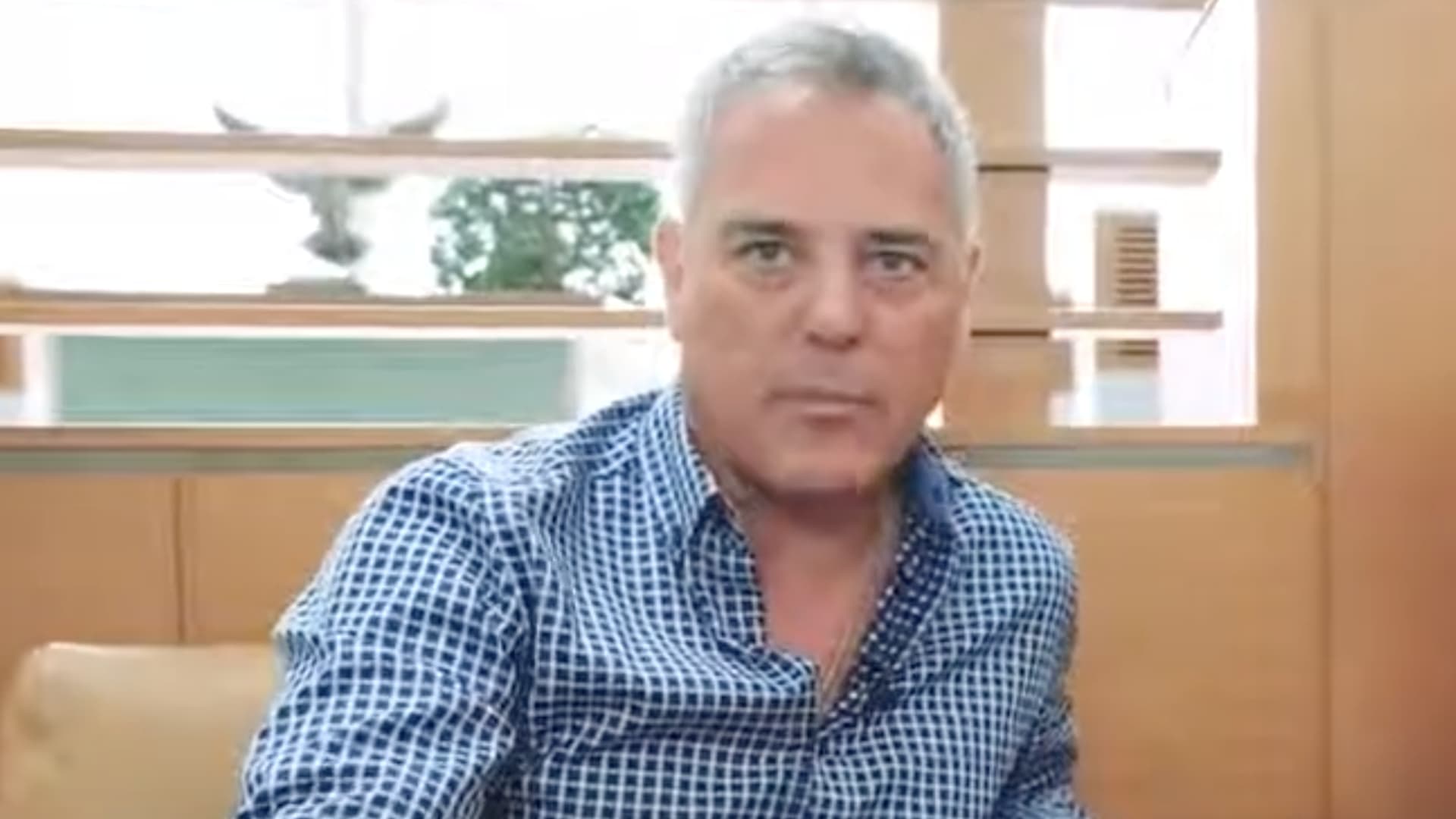Horst Jicha discussing cryptocurrency.
Source: Team Business Global | YouTube
A German national who was under home detention in New York City on a $5 million bond guaranteed by his domestic partner and children in a case in which he was charged with overseeing a $150 million cryptocurrency fraud is now a fugitive.
“There’s a very active investigation underway to capture him,” said John Marzulli, a spokesman for the Brooklyn U.S. Attorney’s Office, on Friday, a day after the defendant, Horst Jicha, failed to appear in Brooklyn federal court as scheduled.
“We are going to forfeit the bond,” Marzulli added, meaning that prosecutors will seek to obtain the $4 million portion of the bond that was personally guaranteed by Jicha’s partner, children and three other people, all of whom live in Germany.
Another $1 million in cash to secure the bond had been deposited with the federal government.
Horst is suspected of having tampered with his ankle bracelet monitor on Oct. 3, a prosecutor from the Brooklyn U.S. Attorney’s Office told a judge Thursday at a hearing that was supposed to address pre-trial issues in the case.
After noticing that Jicha’s ankle bracelet was not working, Pretrial Services officials sent him an email directing him to visit their office the next day. Jicha did not show up, the prosecutor told U.S. District Court Judge Orelia Merchant.
Only then did Pretrial Services inform prosecutors that Jicha’s ankle bracelet had ceased working, 26 hours after becoming aware of that fact, the prosecutor told the judge.
Jicha’s defense lawyers did not immediately reply to a request for comment.
CNBC has requested comment from Pretrial Services in Brooklyn federal court.
U.S. Attorney Breon Peace gives a statement after a former U.S. Rep. George Santos court hearing on August 19, 2024 in West Islip, New York.
Michael M. Santiago | Getty Images
Jicha is scheduled to go on trial in the case March 31, where he faces multiple charges of securities fraud and conspiracy related to a multi-level marketing scheme known as USI Tech.
According to prosecutors, Jicha lied to retail investors when he told them they would make an average of 140% returns on their money in a 140-day period.
Investors were told that there were two ways they could make money: First, they could invest in what were purportedly bitcoin mining and trading operations. They could also earn commissions for referring others to buy USI Tech products, the indictment against Jicha says.
“In reality the platform was just a facade, and when questions arose, Jicha stole millions of his investors’ money and fled the country,” FBI Assistant Director-in-Charge James Smith said in January.
As of Friday, Jicha’s whereabouts were unknown. Court records show he had lived in Brazil and Spain before he was arrested in Florida in late 2023.
Jicha was released on bond in January, and had lived in Brooklyn.
Under the conditions of Jicha’s release, he was obligated to remain in New York City or Long Island, and not to leave his home save for court appearances, attorney visits or medical appointments, unless authorized by Pretrial Services.
Jicha, 64, also was required to surrender all passports and travel documents as a condition of his release.
Court records show that Jicha’s $5 million release bond was guaranteed and signed in January by his domestic partner Ewa Jicha, as well as by Jicha’s adult son and his three daughters, and by the boyfriend of one of Jicha’s daughters and by the boyfriend’s brother and father, court records show.
All of those people were residents of the German state of Baden-Württemberg, according to court records.
But under the terms of the bond, they are also personally responsible for the bond’s amount.
After Horst Jicha was released, Ewa Jicha acted as the third-party custodian for him, and was required to report any violations of his release to a U.S. Probation officer.
Jicha was arrested on Dec. 23 in Miami, after entering the United States for the first time in more than five years, to vacation there.
Prosecutors allege that Jicha launched USI Tech in Europe, where, as a co-founder and CEO, he claimed the company would make “cryptocurrency investments easy and accessible to the average retail investor.”
“In reality, it was a multilevel marketing scheme that relied on investors recruiting other investors below them to buy various purported cryptocurrency investments,” the U.S. Attorney’s Office said in January.
“In 2017, Jicha brought USI Tech to the United States and aggressively marketed it to U.S. retailers on social media and through in-person presentations in which he falsely guaranteed high returns on investments and made false claims about the legality of the platform’s investment offerings,” the office said. There are multiple videos on YouTube showing Jicha hyping the company.
In early 2018, after USI Tech came under regulatory scrutiny in the U.S., “it ceased all U.S. operations overnight, leaving investors with no ability to access their money and resulting in millions of dollars in losses.”
Prosecutors said that much of the missing money in the scam, “valued at approximately $150 million as of the date of his arrest,” was held in the form of ether and bitcoin cryptocurrency. After USI Tech stopped operating, that cryptocurrency was sent to digital deposit addresses controlled by Jicha.





